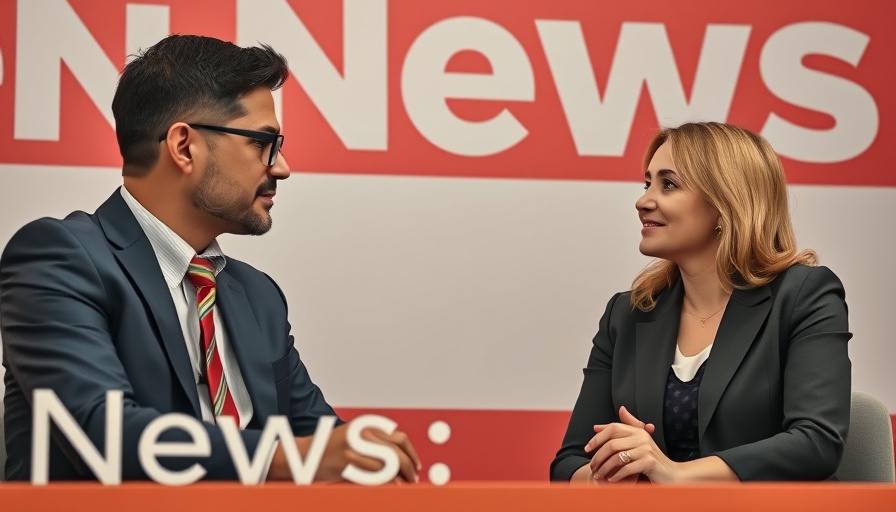
Israel's Calculated Strike: A Bold Move in Geopolitical Landscape
In a significant escalation of military tension in the Middle East, Israel has executed a preemptive strike against Iran's nuclear program, marking a pivotal moment in regional dynamics. This operation, which targets key sites believed to be part of Iran’s effort to develop nuclear weapons, has raised urgent questions not just about military strategies, but about the broader implications for international relations.
Unpacking the Decision: Why Now?
The decision to strike appears to be rooted in a growing sense of urgency regarding Iran’s nuclear ambitions, particularly as reports suggest that Iran was nearing a critical stage in its program. With world powers polarized on their stance toward Iran, Israel's action serves both as a defensive measure and a signal of intent to its allies, particularly the United States. As discussed in a recent livestream event featuring former Israeli ambassador Michael Oren, diplomatic efforts to curtail Iran's nuclear capabilities have proven insufficient, pushing Israel towards this decisive action.
What Happens Next? Responses and Anticipations
As global leaders respond to this military action, the anticipated repercussions could shape geopolitical relationships significantly. Such an operation risks escalating tensions further, drawing reactions from countries like Russia and China, who have historically supported Iran. The United States faces a balancing act: its support for Israel must be weighed against the potential for conflict escalation. Understanding these dynamics provides insights into the risks associated with military strikes in a volatile region.
Perspectives from the Ground: The Voice of the People
Reactions from the local populace in Israel highlight a blend of pride and concern. Many citizens feel a sense of national pride in their government’s decisive actions but also express anxiety over potential backlash. This sentiment is crucial to comprehend the social fabric in Israel, where security concerns are intertwined with national identity. Commentators and civilians alike are voicing their thoughts on social media, reflecting both support for military actions and fears regarding consequences.
A Historical Context: Israel and Preemptive Strikes
This isn’t the first time Israel has engaged in preemptive military actions. Historical precedents such as the 1981 strike on Iraq’s Osirak reactor highlight Israel's long-standing policy of addressing perceived existential threats preemptively. This history informs current perceptions and strategies, showing that such actions are part of a broader defensive doctrine that prioritizes national security over diplomatic leeways.
Future Implications: Where Do We Go From Here?
As we assess the fallout from Israel’s strike on Iran, several implications arise. Key is the potential for increased military tension in the region, which could lead to retaliatory actions from Iran and its allies. Moreover, this event might influence Iran’s tactic on nuclear negotiations, forcing a hardline stance in forthcoming talks. Understanding these potential developments is crucial for observers and policymakers alike.
Call to Engage: What Can Be Done?
For those concerned about the unfolding situation, staying informed is paramount. Engaging in discussions, whether through community forums or social media, allows individuals to better understand the implications of geopolitics on everyday life. Follow current events closely and listen to expert opinions to gain nuanced insights into this complex dynamic.
 Add Row
Add Row  Add
Add 




Write A Comment